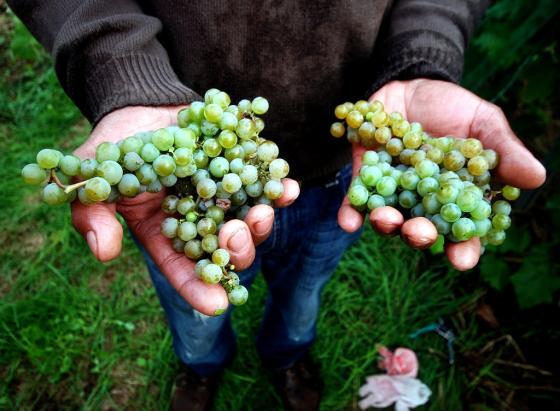Posted December 5, 2013 at 11:14am by
To celebrate repeal of Prohibition, Vermont Farm to Plate publishes cider, spirit, wine and beer food system planning report

Montpelier, VT – National Prohibition came to an end 80 years ago today, on December 5, 1933, when “Utah became the 36th state to ratify the 21st Amendment to the Constitution, repealing the 18th Amendment,” per The New York Times’'On This Day' Blog.
Today in Vermont, the new Hard Cider, Spirits, and Wine section of the Farm to Plate Strategic Plan has been published, detailing the emerging trends and market development opportunities for Vermont’s cideries, distilleries, and wineries. The Farm to Plate Strategic Plan is Vermont’s ten year food system plan legislatively directed to increase economic development and jobs in Vermont’s food and farm sector and improve access to healthy local food for all Vermonters.
To further celebrate the repeal of Prohibition, today Vermont Farm to Plate also re-published the Hops and Beer section of the Farm to Plate Strategic Plan.
Both chapters can be viewed on the Vermont Food System Atlas—a comprehensive web portal linking all facets of Vermont’s food system through an interactive mapping interface, including all sections of Vermont’s food system plan and the 300 member organization Farm to Plate Network responsible for implementing the plan.
Despite Vermont’s small size, its breweries, cideries, distilleries, and wineries are demonstrating national leadership in fast growing segments of the alcohol beverage industry: craft beer, hard cider, ice cider, craft spirits, and boutique wine. Since the Hops and Beer section was originally published in May 2013, the number of Vermont breweries has grown from 27 to 31, with several more currently under development. Vermont now has one brewery for every 20,193 residents. A total economic impact assessment for brewing, distributing, and retailing beer in Vermont estimated a $552 million contribution (Beer Institute, Beer Industry Economic Impact in Vermont, 2012).
As the farm-to-glass movement blooms, Vermont’s cideries, distilleries, and wineries are using a growing list of local ingredients, including apples, berries, grains, milk whey, vegetables, maple sap and syrup, honey, and grapes. Unlike Vermont’s craft beer industry, Vermont’s cideries, distilleries, and wineries can source from small, but local supplies of ingredients. While Vermont’s brewing industry largely relies on out-of-state sources of hops and malt, University of Vermont Extension’s Northwest Crops and Soils Program has provided early stage research support and technical assistance.
Vermont is well-known for apple production and hard cider is an increasingly important value-added product that is winning awards and bringing more dollars by volume for the ‘second-rate’ apples being pressed into crisp bubbly drinks.Woodchuck Hard Cider in Middlebury, Vermont is one of the top two hard cider producers in the country and was recently purchased for over $300 million by an Irish company. Vermont’s craft distilled spirits are using numerous local ingredients and gaining international recognition for superior quality—including a gold medal win for Caledonia Spirits Barr Hill Gin at the 2013 Hong Kong International Wine and Spirit Competition.
With at least 15 distilleries now operating in Vermont, the state is experiencing a “modern distilling revival,” food writer Corin Hirsch stated in a recent Seven Days article: “within a decade, Vermont may well be known as a craft-distilling epicenter.”
Vermont Farm to Plate is weaving together all components of Vermont's food system to strengthen the working landscape, build the resilience of farms and food enterprises, improve environmental quality, and increase local food access for all Vermonters. Farm to Plate is a program of the Vermont Sustainable Jobs Fund, a non-profit organization created by the legislature in 1995 to accelerate the development of Vermont’s renewable energy, sustainable agriculture, and forestry economies.
Grape photo courtesy Boyden Valley Winery
